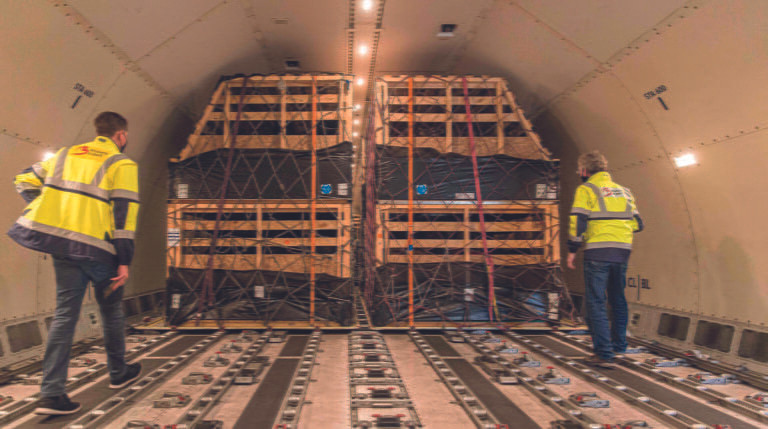Within logistics and cargo handling, a niche yet crucial aspect exists — animal transportation. With over 25 years of experience in live animal transport, Jeff Segers, CEO of IFA Skyfast, has offered a look behind the scenes of this specialised field and the importance of high standards.
Based in Brussels Airport, IFA Skyfast has been involved in this space for decades, moving everything from tiny insects to majestic rhinos, ensuring safe and humane transportation. In an address at the Animal Transportation Association’s 50th annual conference, Segers touched upon several key issues facing airports and cargo crews involved in animal handling, particularly the challenge around infrastructure: “Most airports are not equipped to handle live animals as cargo.”
Three types of facilities are commonly encountered in the industry: those operated by airlines, independent operators, and ground handlers. Each type presents its own set of challenges and considerations, ranging from familiarity with airline procedures to the availability of specialised equipment.
“The majority of airports rely on ground handlers to manage cargo operations, including the transportation of live animals. “While these ground handlers may be experienced in handling general cargo, they often lack the specialised training and equipment required for safe and humane animal transport. This discrepancy in expertise and resources can lead to suboptimal conditions for animals during transit.
“Airport facilities are usually not suited for handling live animals as cargo. Most airports lack the necessary infrastructure and equipment to ensure the safety and welfare of animals during transit.
“This poses a significant challenge for cargo handlers and airlines alike, as they must navigate through airports that are ill-equipped to handle live animal transportation.
“Each airline has its procedures for handling live animals, leading to confusion and inefficiencies. Standard operating procedures provided by airlines may not always prioritise animal welfare, resulting in a lack of clear guidelines for cargo handlers. This inconsistency poses challenges for ensuring the safety and comfort of animals during transit.”
Segers also addressed the lack of a cohesive culture of animal welfare within the industry. “Animal welfare should be a top priority for all stakeholders involved in animal transportation.
“Promoting a culture of animal welfare is essential for improving the standards of live animal transportation. “This culture should permeate every level of the transportation industry, from ground handlers to airline executives. By prioritising animal welfare and investing in training and resources, we can create a more compassionate and responsible approach to live animal transport.
“We all have a responsibility to ensure the welfare of the animals in our care. Whether you work in cleaning or as the CEO of an airline, fostering a culture of animal welfare is essential. By prioritising animal welfare, we can collectively work towards safer and more humane transportation practices.”
Sharing his experience in Brussels, where efforts have been made to improve animal handling practices through collaboration and continuous education, Segers pointed to their approach as an example for others. “Brussels has implemented a community-based approach to improve animal handling practices,” he explained.
“By convening stakeholders from airlines, ground handling agents, animal welfare organisations, and government entities, Brussels has made significant strides in enhancing animal welfare standards and ensuring the safe transportation of live animals.”



